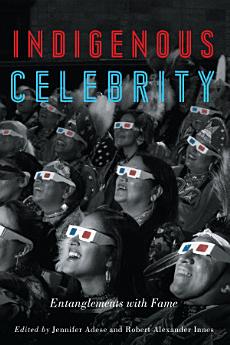Indigenous Celebrity: Entanglements with Fame
About this ebook
It questions and critiques the whitestream concept of celebrity and the very juxtaposition of “Indigenous” and “celebrity” and casts a critical lens on celebrity culture’s impact on Indigenous people. Indigenous people who willingly engage with celebrity culture, or are drawn up into it, enter into a complex terrain of social relations informed by layered dimensions of colonialism, racism, sexism, homophobia/transphobia, and classism. Yet this reductive framing of celebrity does not account for the ways that Indigenous people’s own worldviews inform Indigenous engagement with celebrity culture––or rather, popular social and cultural forms of recognition.
Indigenous Celebrity reorients conversations on Indigenous celebrity towards understanding how Indigenous people draw from nation-specific processes of respect and recognition while at the same time navigating external assumptions and expectations. This collection examines the relationship of Indigenous people to the concept of celebrity in past, present, and ongoing contexts, identifying commonalities, tensions, and possibilities.
About the author
Jennifer Adese is Otipemisiwak/Métis and is the Canada Research Chair in Métis Women, Politics, and Community and an Associate Professor in the Department of Sociology at University of Toronto Mississauga.
Robert Alexander Innes is a member of Cowessess First Nation and is an Associate Professor in the Department of Indigenous Studies at the University of Saskatchewan. He is the author of Elder Brother and the Law of the People and co-editor, with Kim Anderson, of Indigenous Men and Masculinities.







